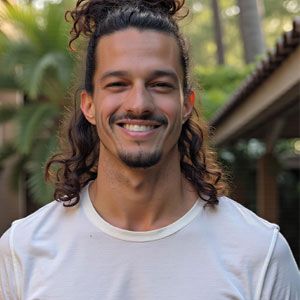
Sustainable and green architecture offers numerous benefits, including environmental protection, economic advantages, and improvements in health and well-being. These benefits arise from reduced resource consumption, lower operating costs, improved indoor air quality, and enhanced social and psychological well-being of occupants. This approach minimizes the negative impact of buildings on the environment and humans, aiming for long-term environmental and social benefits. Going hand-in-hand with nature and construction is Studio ZAZ.
The firm operates as a competent architectural design studio which utilizes an ethical and connected strategy to turn dreams into practical reality by combining elements from design architecture and ecology fields. The firm implements holistic service by working together with experts who specialize in “Jungle” design and architecture along with builders and engineers while respecting the local community and preserving the natural environment. From project planning to user-focused design, Studio ZAZ ensures sustainable, high-quality outcomes, backed by deep construction expertise and strong leadership of creative and contractor teams.
A Meticulous Approach
Studio ZAZ believes in going back to the roots by using local, site-sourced materials. Its global experience enhances its ability to assess locations and integrate vernacular values with modern techniques. While global technologies enrich projects, local knowledge and materials has been the key to the studio’s success. Specializing in harmonizing construction with nature with values and techniques of vernacular architecture, the studio effectively fills market gaps. Clear communication, flexibility, strong core values, and ensuring ideas are well conveyed have helped the studio to establish a distinct identity in the industry.
Furthermore, the firm believes in working with people all around the region and makes sure that nothing is blatantly dismissed and destroyed. Additionally, observing nature and implementing values of permaculture adds a lot of value to its projects. “Buildings don't support our ego, but support what the place needs. I am trying to work with nature and with what we have and not against it”, stated Daniel Nahmias, Founder, Studio ZAZ.
Mitigating Pressing Hurdles
Global projects present challenges like cultural diversity, language barriers, varying technical skills, and harsh environments. Studio ZAZ emphasizes earning local teams’ respect and understanding before introducing new ideas, valuing cultural sensitivity.
Clear communication is very important, especially where advanced methods are unfamiliar. Furthermore, climate risks like typhoons and heavy rain are met with sustainable solutions like water “planting” drainage systems.
Accessing green materials is often tough due to traditional practices, but the firm has successfully navigated these hurdles to complete several standout projects.
Sustainable Projects
The Eco Farm project at Saiyuen Glamping campsite in Hong Kong demonstrates the concept of sustainable design. The entire project was completed using demolition waste materials. Initially, the soil was polluted and was buried with heaps of debris. The team scrapped the topsoil, followed by sieving, cleaning and replanting it. Hong Kong is a place that is largely affected by typhoons and amber rains, rains that come in huge bursts in a few hours. So, places like this require a good drainage system which was lacking. The team adopted the subsoil drainage technique. Water was just not poured into the sea by creating a trench, it was planted in the soil helping to soften and rejuvenate it. What was once a flooded area, changed due the system implanted by the team, making it free from floods.
Furthermore, a noteworthy case study would be the Thai Element restaurant in Koh Phangan, Thailand, wherein, it was executed utilizing an interdisciplinary team. “Welcome to the Jungle” was more than a concept, it was an ecological vision. Instead of placing jungle elements inside the restaurant, the studio designed the restaurant to exist within the jungle. With soft lighting, a central pond, and a maze of lush native plants, nature was invited to lead. The true success? Two months after opening, a bird built a nest in the heart of the garden, hatching five chicks, which is a living symbol of harmony with nature.
Buildings don’t support our ego but rather the needs of the place, and I strive to work with nature and what we have, not against it
For a certain project, the studio collaborated with a pizza baker, graphic designer, city planner, two engineers, and a social entrepreneur, showing its commitment to involving diverse professionals beyond architects to bring fresh ideas and approaches.
Adding to this, other notable projects include, a fountain constructed using beer bottles obtained from local restaurants around, various kinds of concrete made using oyster shells with the help of Hong Kong University. These projects reflect the studio’s blend of sustainability, innovation, and technology to achieve remarkable outcomes.
A Robust Roadmap Ahead
After successful projects in Hong Kong, Thailand, Barcelona, and Brazil, Studio ZAZ continues global collaborations, with current projects in Montenegro and Israel. It supports heart-led wellness entrepreneurs, especially in jungle-rich settings, and welcomes meaningful partnerships aligned with its nature-honoring values and vision. Daniel concludes by stating “Our goal is to help solve challenges in the field and bring better design and architecture into the world. We create spaces that feel good, Let us help you build yours”.
Daniel Nahmias, Founder
Daniel Nahmias, completed his masters from IAAC in Barcelona, is a highly acclaimed, globe-trotting designer and architect who focuses on making the world a more connected and nature-loving place. With a portfolio spanning Jerusalem, Barcelona, Hong Kong, Sweden, Brazil, and beyond, his work blends spatial innovation, complex 3D geometries, and sustainable construction. Nahmias’s design philosophy focuses on asking the right questions over giving fixed answers, aiming to create inclusive, eco-conscious architecture that empowers users and communities.
We use cookies to ensure you get the best experience on our website. Read more...